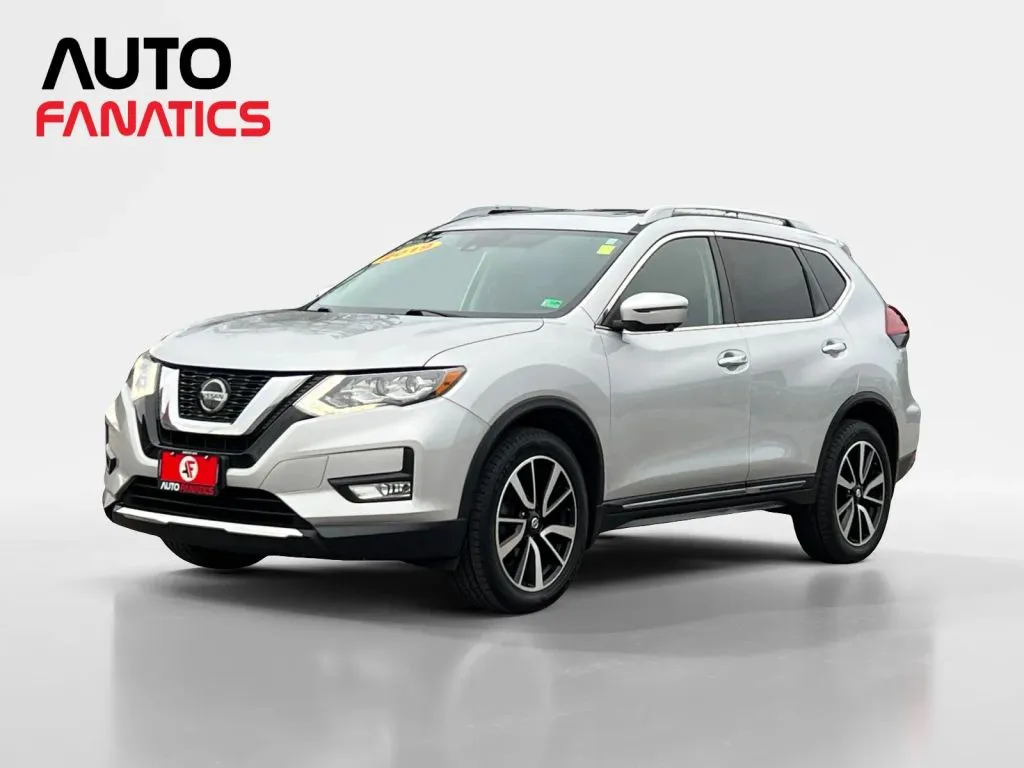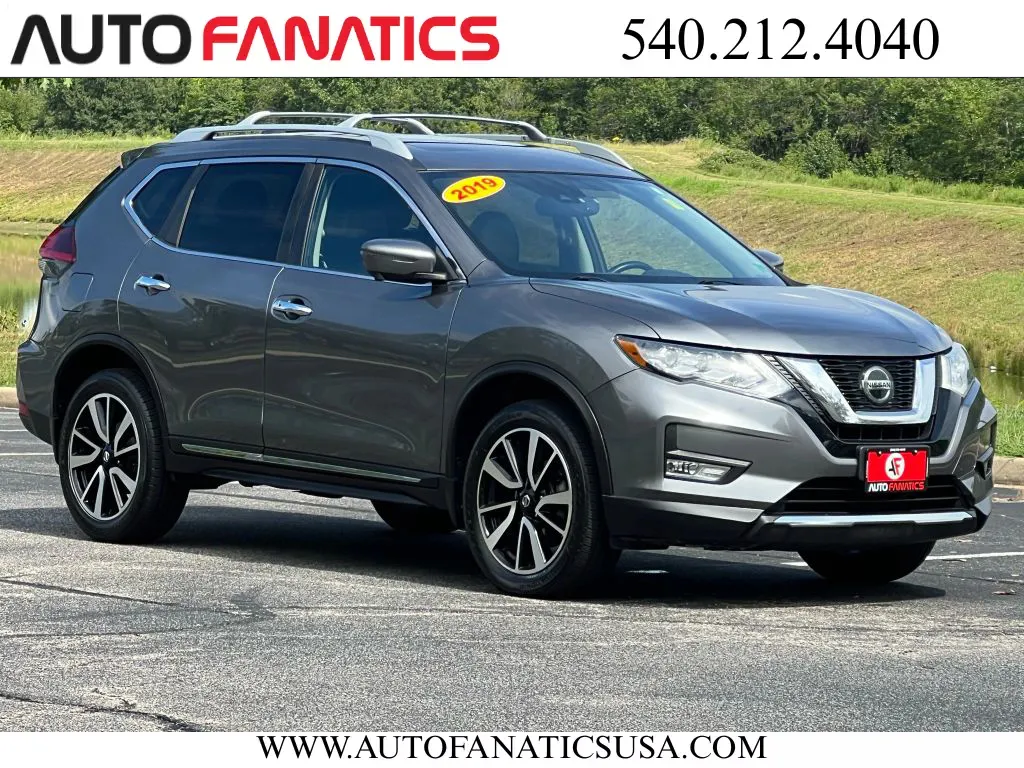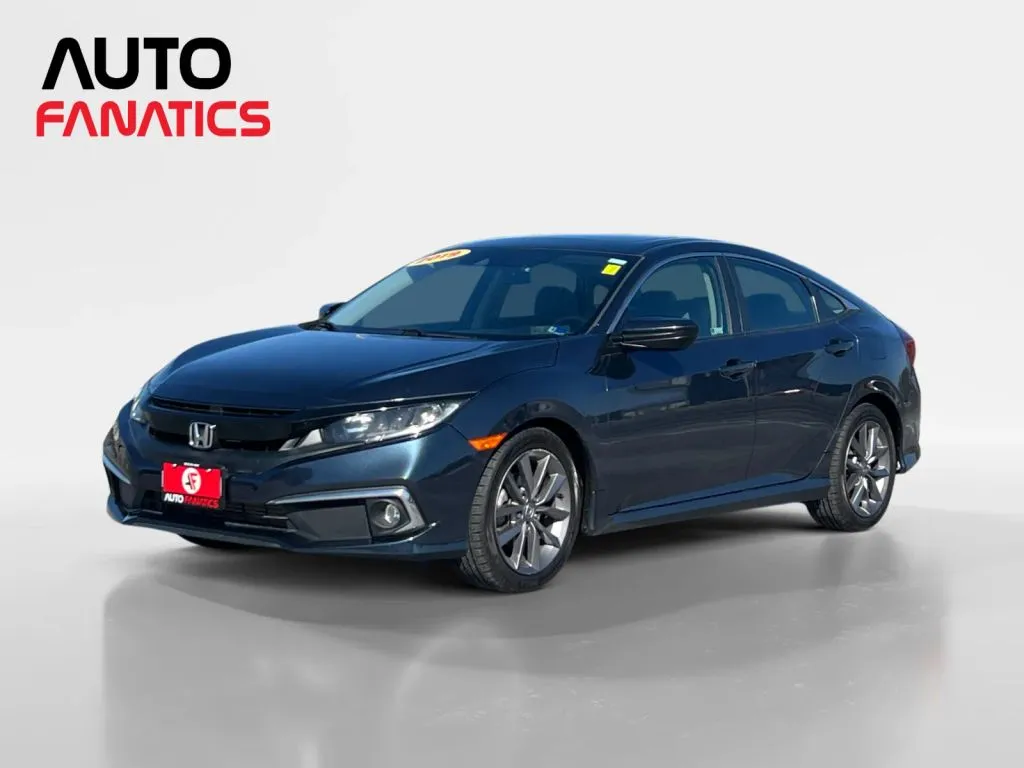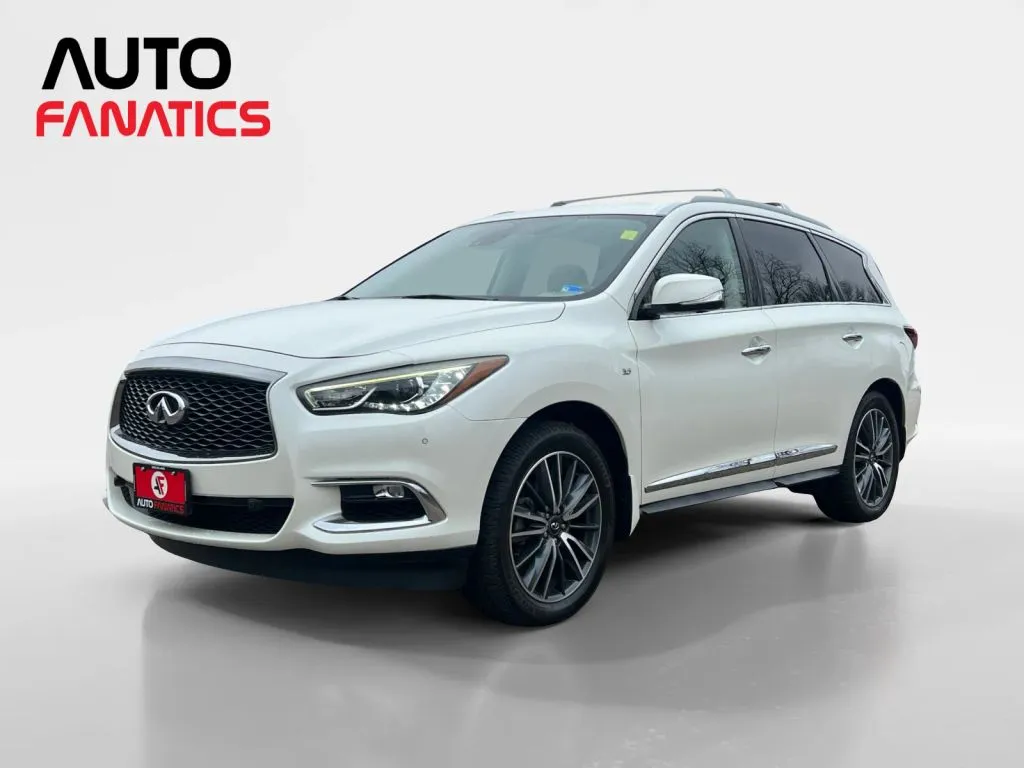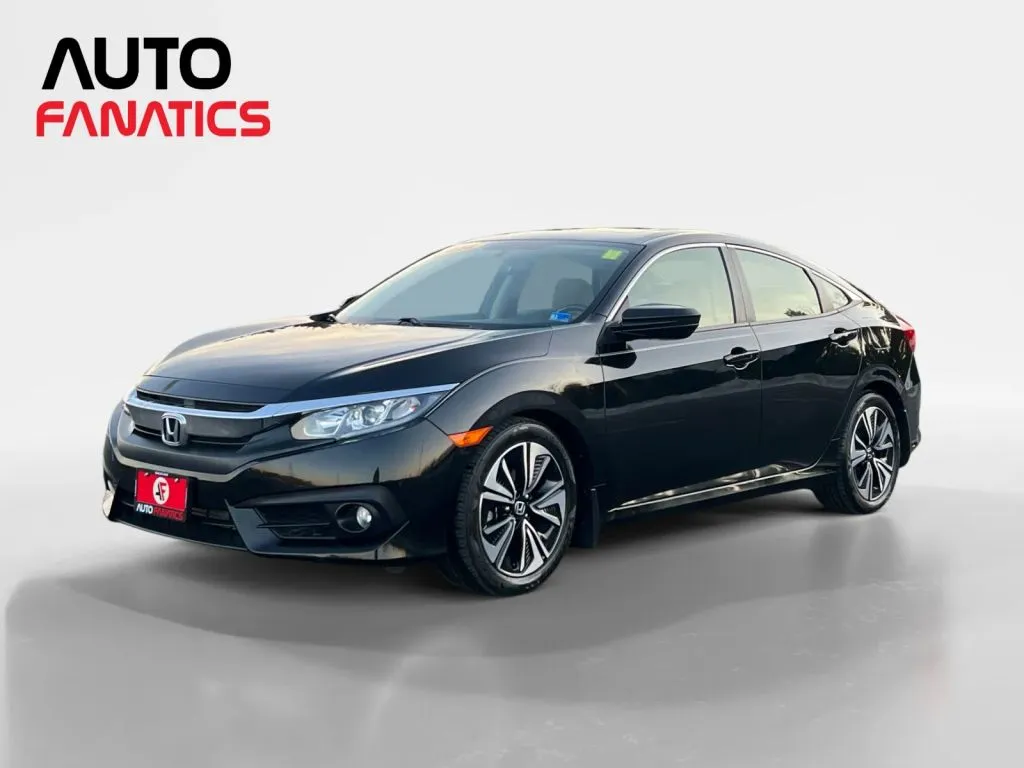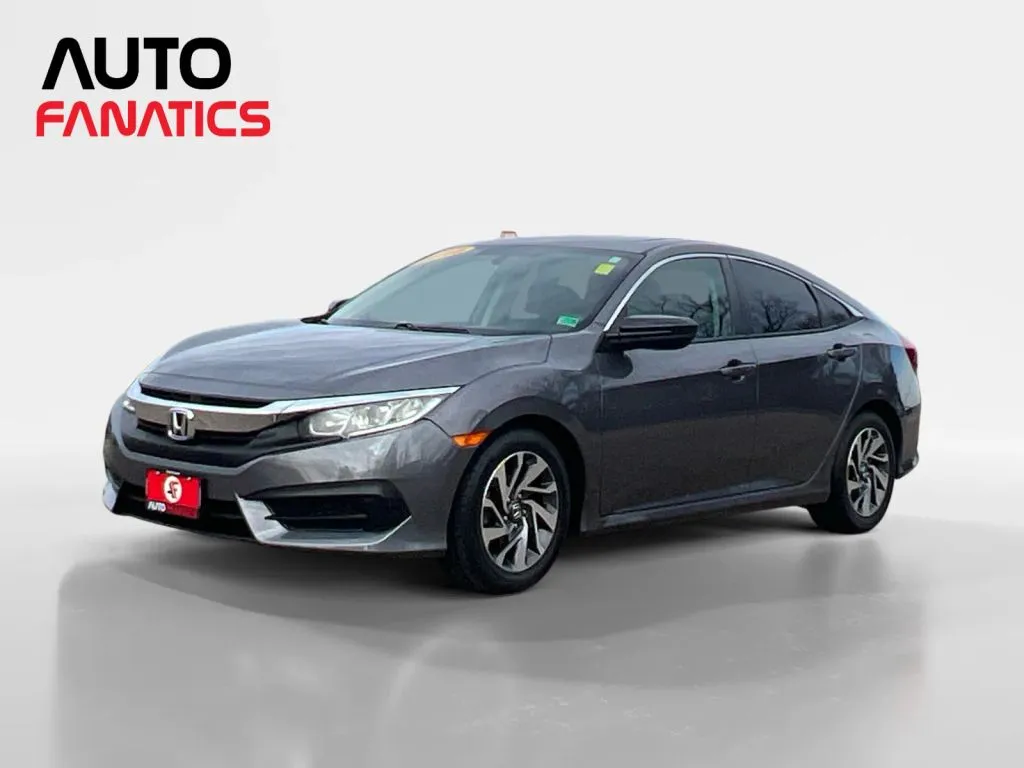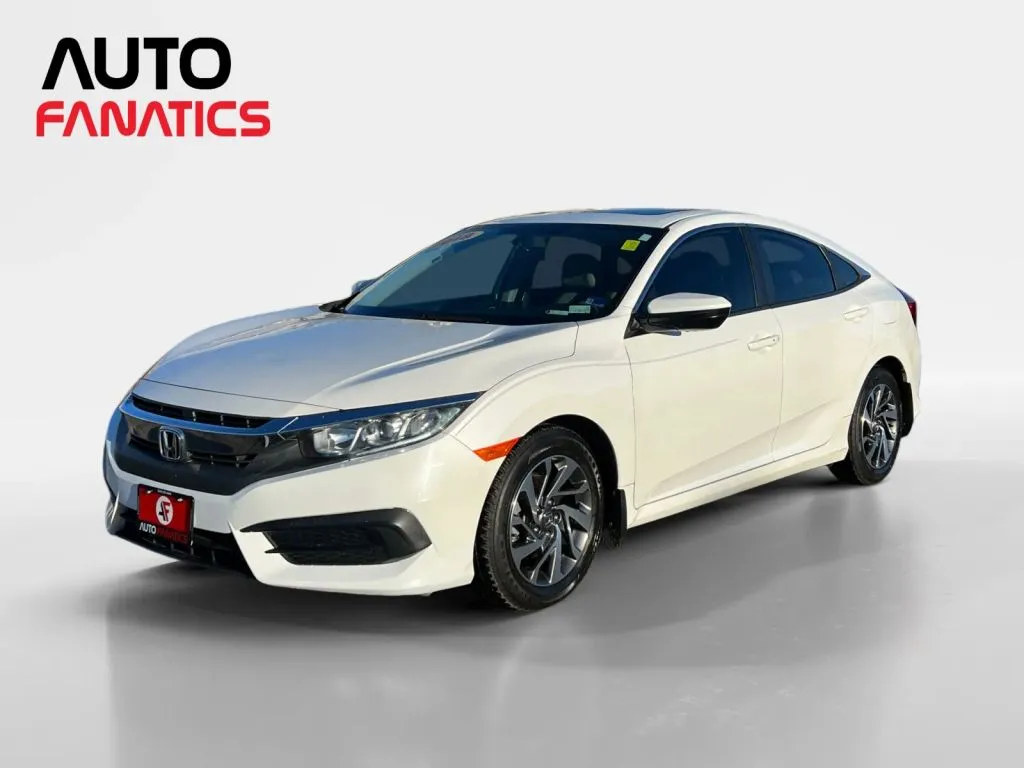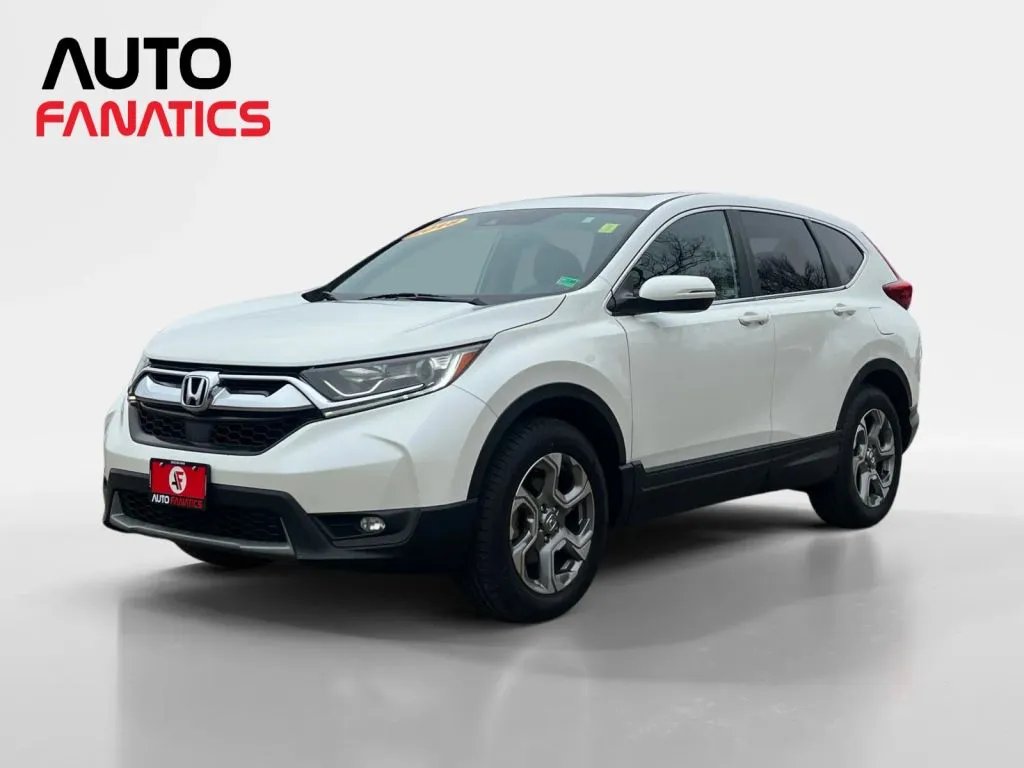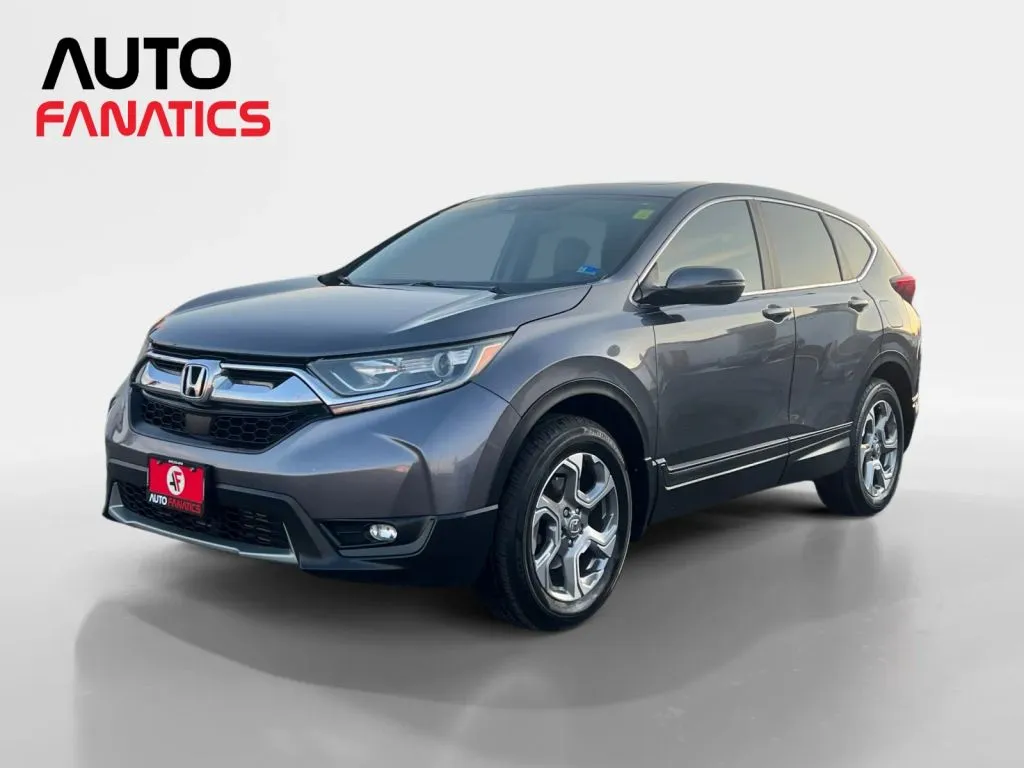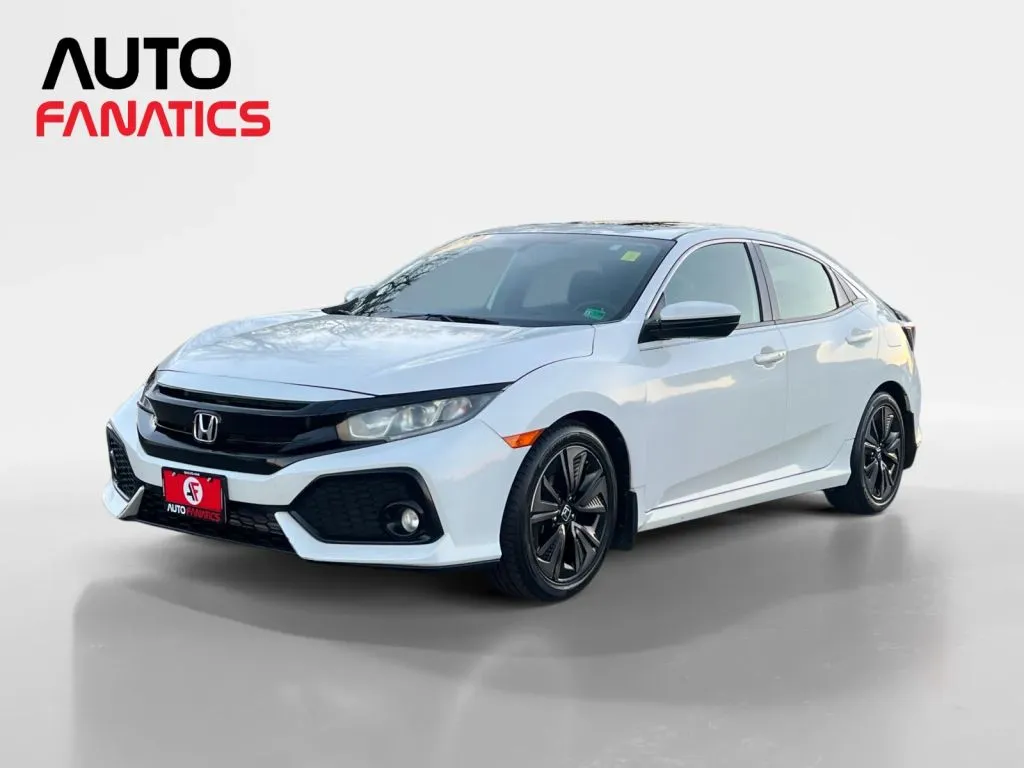Reliable Used Trucks: The Ultimate Buyer's Guide
Buying a used truck can feel like a huge gamble. You want a vehicle you can depend on, but you worry about hidden problems and expensive future repairs. The key to avoiding a bad deal is knowing exactly what to look for—and what to walk away from. This guide is your step-by-step playbook for becoming a confident, informed shopper. We’ll cover the essential inspection points, how to spot potential red flags, and which models have earned a reputation as truly reliable used trucks. You’ll learn how to identify a great vehicle and gain the peace of mind that comes with making a smart choice.
Key Takeaways
- Focus on the Fundamentals, Not Just the Badge: True reliability comes from a proven engine, a consistent maintenance history, and a solid, rust-free frame. These are the non-negotiable elements that ensure a truck is built to last.
- Match the Truck to Your Actual Needs: Be honest about how you'll use your truck day-to-day. Choosing the right engine, towing capacity, and cab size from the start prevents you from buying a vehicle that's too much or not enough for your lifestyle.
- Trust, But Always Verify for Yourself: A thorough test drive, a careful review of the vehicle history report, and an inspection by an independent mechanic are your best defense against future problems. This final check gives you the confidence to make a smart purchase.
What Defines a Reliable Used Truck?
When you’re in the market for a used truck, the word “reliable” gets thrown around a lot. But what does it actually mean? It’s more than just a brand name or a tough-looking exterior. A truly reliable truck is a combination of smart engineering, consistent care, and solid construction. It’s a vehicle you can count on for daily commutes, tough jobs, and weekend adventures without worrying about unexpected breakdowns. Understanding the key ingredients of a dependable truck will help you look past the shiny paint and focus on what really matters, ensuring you drive away with a vehicle that’s built to last.
A Proven Engine and Transmission
The heart and soul of any truck is its powertrain. A reliable truck almost always features a well-regarded engine and transmission combination known for its durability. Some engines are simply built to go the distance, and their track records prove it. When you're looking at different models, do a little research on the specific engine inside. The type of engine makes a huge difference in how long the truck will last. At Auto Fanatics, we focus on stocking trucks with powertrains that have earned a reputation for strength and longevity, giving you peace of mind from the moment you turn the key.
A Clear Maintenance History
A well-documented service record is one of the best indicators of a reliable truck. It’s like a report card that shows how the previous owner cared for the vehicle. Look for a clear and regular maintenance history that includes consistent oil changes, brake checks, fluid flushes, and tire rotations. This paperwork proves the truck wasn't neglected and that small issues were addressed before they could become major problems. A vehicle with a spotty or non-existent service history is a gamble, but one with detailed records shows it has been properly cared for.
Solid Build Quality and Materials
You can often feel quality, and it’s no different with a truck. Trucks that are built with high-quality materials and solid construction tend to last longer and perform better over time. This includes everything from the thickness of the sheet metal to the quality of the interior plastics and upholstery. A well-built truck will show less wear and tear, feel more solid on the road, and stand up better to the demands of work and daily driving. Choosing a reliable used truck helps you get the most for your money, and that starts with a foundation of quality craftsmanship.
A Strong, Rust-Free Frame
Before you fall in love with a truck, you have to look underneath it. It's crucial to check for rust, especially on the frame, which is the vehicle's skeleton. A strong, rust-free frame is absolutely essential for the longevity and safety of the vehicle. Surface rust on some components can be normal, but deep, flaky rust on the frame is a major red flag that can compromise the truck's structural integrity. This is especially important here in Virginia, where road salt is used in the winter. We carefully inspect the frame of every vehicle in our inventory to ensure it’s solid.
Modern Safety Features
A reliable truck should also be a safe one. As you shop, look for models equipped with modern safety systems that can help you avoid accidents. Features like rearview cameras, blind-spot monitoring, and lane departure warnings were once luxury options but are now common on many recent-year used trucks. These technologies not only enhance your safety on the road but also add significant value and convenience to your driving experience. A truck that helps protect you and your passengers is a reliable partner for any journey.
Top Picks for Reliable Used Trucks
Shopping for a used truck is a big deal. You need something that can handle tough jobs, weekend adventures, and your daily commute without letting you down. The good news is that many trucks are built to last, and finding a dependable one comes down to knowing which models have a proven track record. Whether you’re hauling equipment to a job site in Spotsylvania or towing a boat to Lake Anna, the right truck makes all the difference.
We’ve looked at some of the most popular and time-tested trucks on the market to help you narrow down your search. These models consistently earn high marks for durability, performance, and owner satisfaction. From legendary long-haulers to versatile workhorses, here are our top picks for reliable used trucks that deliver serious value. Let’s find the one that’s perfect for you.
Toyota Tundra & Tacoma: The Longevity Kings
When you hear people talk about trucks that "last forever," they're often talking about a Toyota. Both the full-size Tundra and the mid-size Tacoma have built a rock-solid reputation for dependability. It’s not uncommon to see these trucks running strong well past 300,000 miles with proper care. The Tundra, especially models with the powerful 5.7L V8 engine, is known for its robust build and straightforward engineering. If your top priority is a truck that you can count on for years to come, a well-maintained Tundra or Tacoma is one of the smartest choices you can make.
Ford F-Series: America's Favorite Workhorse
The Ford F-Series has been a bestseller for decades, and for good reason. These trucks are true workhorses, designed to handle just about anything you can throw at them. Some owners have even reported getting an incredible 600,000 miles out of their F-150s. While they are built tough, certain model years and engines have known issues, like potential turbo or timing chain problems, that can be expensive to fix. That’s why a thorough pre-purchase inspection is so important. A well-cared-for F-150 offers an amazing combination of capability, comfort, and classic American grit.
Chevrolet Silverado: A Versatile Powerhouse
The Chevrolet Silverado is another top contender, known for its versatility and strong engine lineup. It’s a truck that’s just as comfortable on a family road trip as it is on a construction site. Many owners find their Silverados easily reach 250,000 miles or more. Certain older models, particularly those from 1999-2006 with the 4.8L or 5.3L Vortec engines, are legendary for their durability. Newer versions offer powerful options like the 6.2L V8, giving you plenty of muscle for towing and hauling. The Silverado is a fantastic all-around truck that balances power with everyday usability.
Ram Trucks: Where Power Meets Comfort
If you want a truck that works hard but doesn’t skimp on comfort, a Ram should be on your list. Ram trucks are famous for their smooth ride and high-quality interiors, making them a great choice if you spend a lot of time behind the wheel. But don’t let the comfort fool you—these trucks are seriously capable. Many models, especially those equipped with the legendary 5.7L HEMI V8, can tow over 12,000 pounds. A used Ram offers a unique blend of raw power and refined comfort that’s hard to beat.
Known Issues for Each Model
Every used truck, no matter the brand, has potential wear-and-tear items to watch for. One of the most important things to check on any truck is the frame. Crawl underneath and look for significant rust, as frame rot can be a deal-breaker. Over time, any vehicle can also develop transmission or electrical issues, so pay close attention to how the truck shifts during your test drive and make sure all the electronics work as they should. Being aware of these potential issues helps you make an informed decision, and investing in protection plans can provide extra peace of mind for the future.
Thinking Ahead: Resale Value
Choosing a reliable truck isn't just about avoiding headaches—it's also a smart financial move. Trucks with a reputation for durability and a strong engine tend to hold their value exceptionally well. This means that when it’s time to upgrade again in a few years, you’ll get more of your money back. A well-maintained Toyota, Ford, Chevy, or Ram will always be in demand. By picking a dependable model and taking good care of it, you’re making an investment that will pay off down the road when you decide to get your trade-in value.
Matching the Truck to Your Lifestyle
A truck isn't just a vehicle; it's a tool, a partner for work, and a companion for adventure. The "best" truck for you is the one that fits seamlessly into your daily life. Before you even start looking at specific models, take a moment to think about what you really need. Are you hauling tools and materials to job sites around Fredericksburg every day? Or are you looking for a dependable vehicle to tow the boat to Lake Anna on the weekends? Maybe you need a versatile ride that can handle the school run during the week and a camping trip with the family when Friday rolls around.
Your answers to these questions will guide every decision you make, from the engine under the hood to the size of the cab. Thinking this through upfront saves you from buying a truck that’s too much for your needs (and your wallet) or one that can’t keep up with your demands. It’s all about finding that perfect balance of capability, comfort, and practicality. At Auto Fanatics, we have a wide selection of used trucks, and our goal is to help you find the one that feels like it was made just for you.
Finding the Right Engine
The engine is the heart of your truck, and choosing the right one comes down to a simple trade-off: power versus efficiency. A V6 engine is often a great choice for daily driving and light-duty tasks. It will give you better gas mileage, which is a huge plus for commuting or running errands. If you plan on doing serious towing or hauling heavy loads, a V8 is likely the better option. It provides the raw power and torque needed to handle demanding jobs without straining the vehicle. When you're looking at a used truck, it's essential to consider the engine's history and overall condition to ensure it’s reliable for the long haul.
Understanding Towing and Payload Needs
Before you fall in love with a truck, you need to be honest about what you’ll be carrying. Towing capacity refers to how much weight the truck can pull behind it, like a trailer or a boat. Payload capacity is the maximum weight it can carry in its bed and cab, including passengers and cargo. Think about the heaviest load you’ll ever need to manage. It’s always smart to choose a truck with a slightly higher capacity than you think you’ll need. This gives you a safety buffer and prevents you from overworking your vehicle, which can lead to costly repairs down the road. Our Car Loan Calculator can help you budget for a truck with the right capabilities.
Must-Have Tech and Safety Features
Modern trucks come with incredible technology that makes driving safer and more convenient. When you’re shopping for a used truck, don’t overlook these features. A rearview camera is practically essential for parking and maneuvering a large vehicle safely. Other features like blind-spot monitoring and lane departure warnings can be lifesavers on busy Northern Virginia highways. Look for models with anti-lock brakes (ABS), stability control, and a full set of airbags. These aren’t just fancy extras; they are critical systems that protect you and your passengers. Many of the SUVs and trucks in our inventory come equipped with these modern safety features.
Choosing Your Cab and Bed Size
The configuration of your truck’s cab and bed determines how you can use it. A Regular Cab has two doors and is ideal for work-focused individuals who don’t need to carry extra passengers. An Extended or Crew Cab offers a second row of seating, making it a great choice for families or anyone who needs more interior space. Similarly, bed length is a crucial decision. A long bed is perfect for hauling lumber or large equipment, while a short bed offers better maneuverability in tight spaces and city parking lots. Think carefully about who and what you’ll be carrying most often to pick the right combination.
Don't Forget Interior Comfort
You're going to be spending a lot of time in your truck, so make sure it’s a comfortable place to be. Modern trucks have come a long way from the purely utilitarian vehicles of the past. Look for features that reduce fatigue and make driving more enjoyable, like supportive, ergonomic seats, an adjustable steering wheel, and an intuitive infotainment system. Good climate control is a must for Virginia's hot summers and chilly winters. A comfortable interior can make the difference between dreading your commute and looking forward to the drive. Our team is dedicated to your satisfaction, and you can learn more about our customer-first approach on our About Us page.
Your Step-by-Step Inspection Guide
Finding the right truck is exciting, but a thorough inspection is what turns a good find into a great purchase. This is your chance to look past the shiny paint and really get to know the vehicle. Taking the time to check these key areas will give you the confidence that you’re choosing a truck that’s ready for the long haul. At Auto Fanatics, we’ve already done the heavy lifting by meticulously inspecting every vehicle, but we want you to feel completely sure about your choice. Think of this as your personal checklist for peace of mind.
The Walk-Around: What to Look For
Before you even grab the keys, take a slow walk around the truck. Look at it from all angles in good light. Check for mismatched paint or uneven gaps between body panels, which could suggest past repairs. Examine the tires—do they have even tread wear? Uneven wear can point to alignment issues. Don't forget to look at the glass for any chips or cracks. Peek into the truck bed. A heavily scratched and dented bed shows it’s been used for hard work, while a pristine one might mean it was used more like a car. This initial walk-around gives you a first impression of the truck's history and overall condition.
The Test Drive: What to Listen For
This is where you get a real feel for the truck. Turn off the radio and pay attention to the sounds and sensations. When you start it up, does the engine sound smooth? As you drive, listen for any strange noises like clunking, whining, or grinding. Test the brakes in a safe area—they should feel firm and stop the truck in a straight line without pulling. Pay close attention to the transmission as it shifts gears; it should be smooth, not jerky. How does the steering feel? It should be responsive without too much play. Try to drive on a mix of roads, including some bumps and a highway, to see how the suspension handles.
How to Read a Vehicle History Report
A vehicle history report, like a CarFax or AutoCheck, is the truck’s resume. It tells you about its past owners, accident history, and title status (look out for salvage or rebuilt titles). The most important part is often the service history. Look for regular oil changes, brake checks, and tire rotations. A well-documented history is a good sign that previous owners cared for the vehicle. While a few gaps aren't a deal-breaker, a consistent record of maintenance is a huge plus. We believe in full transparency, which is why we provide these reports for our selection of trucks.
Why You Should Always Get a Mechanic's Opinion
Even with a clean history report and a great test drive, getting a pre-purchase inspection (PPI) from a trusted, independent mechanic is a smart move. They can put the truck on a lift and spot things you can’t see, like hidden leaks or developing mechanical issues. It might seem like an extra step, but it can save you thousands in the long run. At Auto Fanatics, we pride ourselves on our rigorous inspection process, and our many positive customer reviews reflect that. Still, we welcome you to have your own mechanic take a look for that final layer of confidence.
Checking for Rust and Frame Damage
Rust is a truck’s worst enemy, especially in areas that see winter salt. Get down and look underneath the truck. Check the frame rails, wheel wells, and rocker panels for excessive rust or flaking metal. Surface rust is often normal, but deep, structural rust is a major red flag. While you’re under there, look for any signs of frame damage, like bent sections or sloppy weld marks, which could indicate a previous major accident. Remember, a pretty exterior can hide serious problems, so don't be afraid to get a little dirty to check the truck's foundation.
Warning Signs: When to Walk Away
Sometimes, the smartest move you can make when buying a used truck is to walk away. It’s easy to get attached to a vehicle, but letting go of the wrong one will save you from a world of headaches and financial strain. At Auto Fanatics, we meticulously inspect every
Signs of Engine or Transmission Trouble
The engine and transmission are the heart and soul of any truck, and repairs can be incredibly expensive. During your test drive, turn the radio off and pay close attention to how the truck performs. Listen for any knocking, ticking, or grinding sounds from the engine. When you accelerate, the transmission should shift smoothly and decisively. If you feel any hesitation, jerking, or slipping between gears, that’s a serious warning sign. Also, check for any visible leaks under the truck after it’s been parked and look for blue or white smoke coming from the exhaust pipe.
Electrical Gremlins to Avoid
Modern trucks are packed with complex electronics, and fixing them can be a nightmare. The first thing to check is the dashboard when you start the engine. Do any warning lights stay on? While some are minor, lights for the check engine, ABS, or airbag systems can signal deep-rooted and costly problems. Don’t stop there. Methodically test every electronic feature you can find—power windows, door locks, infotainment screen, climate controls, and all interior and exterior lights. If you find multiple things that don’t work, it could point to a larger, more systemic electrical issue.
Spotting Hidden Structural Damage
A truck’s frame is its foundation, and any damage to it can compromise its safety and integrity. Always perform a thorough visual inspection in broad daylight. Look for uneven gaps between body panels or doors that don’t close properly, as these can be signs of a past accident. Mismatched paint color or texture from one panel to another is another giveaway. Most importantly, get on the ground and inspect the frame itself. You’re looking for significant rust that flakes away, any cracks, or any welds that look unprofessional. A clean frame is essential for a long-lasting, reliable truck.
Suspension and Steering Red Flags
A truck’s suspension doesn’t just provide a comfortable ride; it ensures you stay in control. During the test drive, listen for any unusual noises. Clunking or creaking sounds when you drive over bumps or make sharp turns can indicate worn-out suspension components. The steering should feel responsive and direct. If the truck pulls to one side or the steering wheel vibrates, it could be anything from a simple alignment issue to a more serious problem with the steering rack. A quick visual check of the tires can also offer clues—uneven wear often points directly to suspension or alignment trouble.
Clues of Expensive Future Repairs
The best way to predict a truck’s future is to look at its past. A vehicle with a spotty or non-existent maintenance history is a gamble. You want to see records of regular oil changes, fluid flushes, and other routine services. A vehicle history report can reveal reported accidents, but a lack of records is its own red flag. Pop the hood and check the engine oil and transmission fluid—if they’re dark, gritty, or smell burnt, it’s a sign of neglect. While a great truck can still need repairs, you can get peace of mind with our automotive protection plans.
Sealing the Deal with Confidence
You’ve done the research, completed the test drive, and found the perfect truck. Now it’s time for the final steps. This part of the process can feel intimidating, but with the right approach, it can be straightforward and even exciting. A trustworthy dealership will guide you through every step without pressure, ensuring you feel great about your purchase long after you drive off the lot. It’s all about being prepared, asking the right questions, and knowing what to expect. Let’s walk through how to finalize your purchase with total peace of mind.
How to Know You're Getting a Fair Price
Determining a fair price for a used truck involves more than just looking at the sticker. It’s about understanding the vehicle's total value. Start by researching similar models online using resources like Kelley Blue Book or Edmunds to get a baseline. Remember to factor in the truck’s specific mileage, condition, and features. A well-maintained vehicle with a clean history report might be priced higher, but it often saves you money on future repairs. At Auto Fanatics, we price our trucks competitively based on a thorough inspection and market analysis, so you can be sure the price reflects the quality you’re getting. A fair deal is one where transparency leads the conversation.
Simple Tips for a Smooth Negotiation
The word "negotiation" can sound confrontational, but it doesn't have to be. Think of it as a conversation to reach a price that works for everyone. The key is to be prepared and polite. Know your budget and the truck's market value before you start talking numbers. If you have a vehicle to trade in, you can get a trade-in value online beforehand to have a solid starting point. At a no-pressure dealership, the goal isn't to haggle endlessly but to ensure the final agreement is clear and fair. A calm, informed approach will always lead to a better outcome and a more positive buying experience.
Getting Your Financing Lined Up
Arranging your financing before you finalize the deal is one of the smartest moves you can make. It helps you establish a firm budget and shows you’re a serious buyer. You can start by using a car loan calculator to estimate your monthly payments. Many buyers find it helpful to get pre-qualified for a loan, which gives you a clear picture of what you can afford. We make it easy to get approved through our website, allowing you to shop with a solid financial plan in place. This preparation removes uncertainty and lets you focus on what really matters: choosing the right truck for your needs.
Understanding Protection Plans and Warranties
While you’ve chosen a reliable truck, an extended protection plan can offer valuable peace of mind. These plans are designed to cover the cost of unexpected mechanical repairs after the manufacturer's warranty has expired. Think of it as a safety net for your investment. When considering a plan, ask what components are covered—like the engine, transmission, and electrical systems—and what the deductible is. Our team can walk you through the different automotive protection plans we offer, helping you find one that fits your driving habits and budget without any pressure. It’s an optional layer of security that many truck owners appreciate.
Finalizing the Paperwork
The last step is signing the paperwork. This includes the bill of sale, title application, and financing agreements. It might seem like a lot of documents, but a transparent dealership will take the time to explain each one clearly. Don't hesitate to ask questions about anything you don't understand. Make sure all the agreed-upon terms, including the final price and any additional plans, are accurately reflected in the documents before you sign. Our commitment to a hassle-free experience is why so many of our customers leave us positive reviews. We want you to feel completely comfortable and confident as we hand you the keys to your new truck.
Related Articles
- Best Used Trucks for Sale: A 2025 Buyer's Guide
- Most Reliable Used Trucks: Our Top 5 Picks
- A Smart Buyer's Guide to Used Toyota Trucks
Frequently Asked Questions
What's the single most important thing to check on a used truck? While the engine and transmission are vital, you should always pay close attention to the truck's frame. Think of it as the vehicle's skeleton. Get down and look underneath for any signs of deep, flaky rust or damage from a past accident. A clean, solid frame is the foundation of a safe and long-lasting truck, and problems here are often too serious and expensive to fix.
Should I automatically rule out a truck with high mileage? Not at all. A truck with 150,000 miles and a perfect maintenance history is often a much better choice than one with 70,000 miles and a history of neglect. Some trucks, like the Toyota Tundra or certain Ford F-150s, are famous for running strong for hundreds of thousands of miles. Focus on the quality of the miles, not just the quantity, by looking for a detailed service record.
How do I decide between a V6 and a V8 engine? This really comes down to how you plan to use the truck. If your primary use is daily commuting with occasional light hauling, a V6 will give you better fuel economy and is more than capable. However, if you plan on regularly towing a heavy trailer, boat, or carrying significant weight in the bed, the extra power and torque of a V8 is the right choice to handle the work without straining the vehicle.
What if a truck looks great but has a few red flags on the vehicle history report? It's always best to proceed with caution. A vehicle history report tells the story you can't see, and things like a salvage title, flood damage, or a history of accidents can point to hidden, long-term problems. While a minor incident isn't always a deal-breaker, serious issues are a sign that you should probably keep looking. There are plenty of great trucks out there with clean records.
I'm not a mechanic. How can I feel confident about a truck's condition? You don't have to be an expert to make a smart choice. After you've done your own walk-around and test drive, the best thing you can do is invest in a pre-purchase inspection (PPI). Taking the truck to a trusted, independent mechanic gives you an unbiased, professional opinion on its true condition. It's a small investment that provides incredible peace of mind and can save you from costly surprises down the road.

